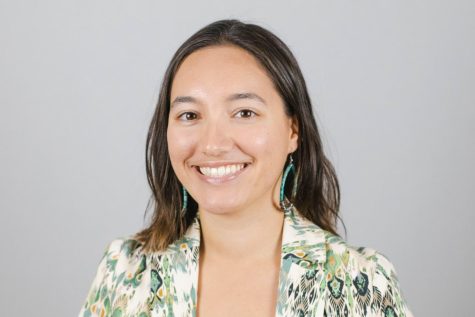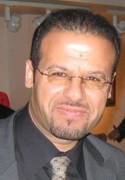UCLA professor and respected international scholar Nouri Gana will visit NMU to speak about his new book, “The Making of the Tunisian Revolution,” at 6 p.m. Wednesday, Sept. 17 in the Brule Room of the University Center.
“This event was created to give NMU a chance to embrace diversity and learn about Nouri Gana, as he talks about his new book, ‘The Making of the Tunisian Revolution,’ as well as the role of the arts in the Arab Spring,” junior marketing major and Black Student Union vice president Andre Stringer said.
Gana was born, raised and educated in Tunisia, a country located in Northern Africa, later studying and teaching in Canada and the United States, according to his profile on the UCLA Department of Comparative Literature’s webpage.
He earned his B.A. studying at Manouba University in Manouba, Tunisia, and his M.A. and Ph.D. at the University of Montreal.
Gana also taught at Queen’s University in Kingston, Ontario and at the University of Michigan- Dearborn before assuming his current position as associate professor in UCLA’s Departments of Comparative Literature and Near Eastern Languages and Cultures.
The audience “…can learn something more about Arabs, the Muslim religion and the importance of education,” professor and Black Student Union adviser Shirley Brozzo said.
Professor and event coordinator Nathaniel Greenberg, who also studies comparative literature, said Gana’s visit is an honor.
“He’s a senior colleague, I admire his work and I consider this to be a favor, and an honor, that he’s coming,” Greenberg said. “I suspect he will summarize the history of revolution in Tunisia and some of the major cultural products that have emerged from that, over the years.”
The 2011 Tunisian revolution is considered to be the spark that started the Arab Spring uprisings.
The revolution in Tunisia began after a local vendor, Mohamed Bouazizi, set himself afire in view of the local governor’s office in protest of the cruelty he faced from corrupt local officials.
“The symbol by just burning himself, using his body as a way to express that anger and need for dignity touched a lot of Tunisians,” Zied Mhirsi, a doctor involved in the uprising, said in a 60 Minute-piece titled “How a Slap Sparked Tunisia’s Revolution.”
Bouazizi died from his wounds. He was posthumously awarded a Sakharov Prize for Freedom of Thought by the European parliament.
The Tunisian public erupted in protests, and with the backing of the Tunisian military, toppled president Ben Ali’s government in less than a month.
In early 2011, Greenberg found himself in Egypt as the dominoes began to fall around president Hosni Mubarak.
“Seeing people pick up arms and form local neighborhood brigades was something I’ll never forget. I joined it myself,” Greenberg said. “My wife sent me downstairs with a broomstick and said ‘You’ve got to get down there, you know.’”
The Egyptian people, backed by the military, eventually forced Mubarak from power.
More than three years have passed now since the fall of Ben Ali’s government in Tunisia, and it has been more successful at setting up a democratic government than other Arab Spring countries.
The Tunisian assembly has passed a new constitution recognizing gender equality and freedom of religion, and the elections in 2011, the first since Ben Ali’s ouster, were monitored by observers for fraud.
“What was that unique mixture that allowed for Tunisia to ultimately pull through, get a constitution passed, put in place a new parliament?” Greenberg said, stating Gana was going to answer that question.
This event is hosted by NMU’s departments of history, modern languages & iteratures and English, as well as the Black Student Union. Funding for the event came through the College of Arts and Sciences.
“When the opportunity to sponsor this event was presented, [the Black Student Union] thought it would be a great idea,” Stringer said. “It gives us a chance to broaden our diverse horizons.
“Professor Nouri Gana will have an awesome talk and we are excited to hear about Tunisia and the current state of affairs in North Africa.”
There is no cost to attend this event, which is the second of two lectures in the Art and Revolution in the Middle East and North Africa public lecture series.
The first lecture was given by Fulbright scholar Osama Medany on Thursday, Sept. 4, when he spoke about the revolution in Egypt.

























